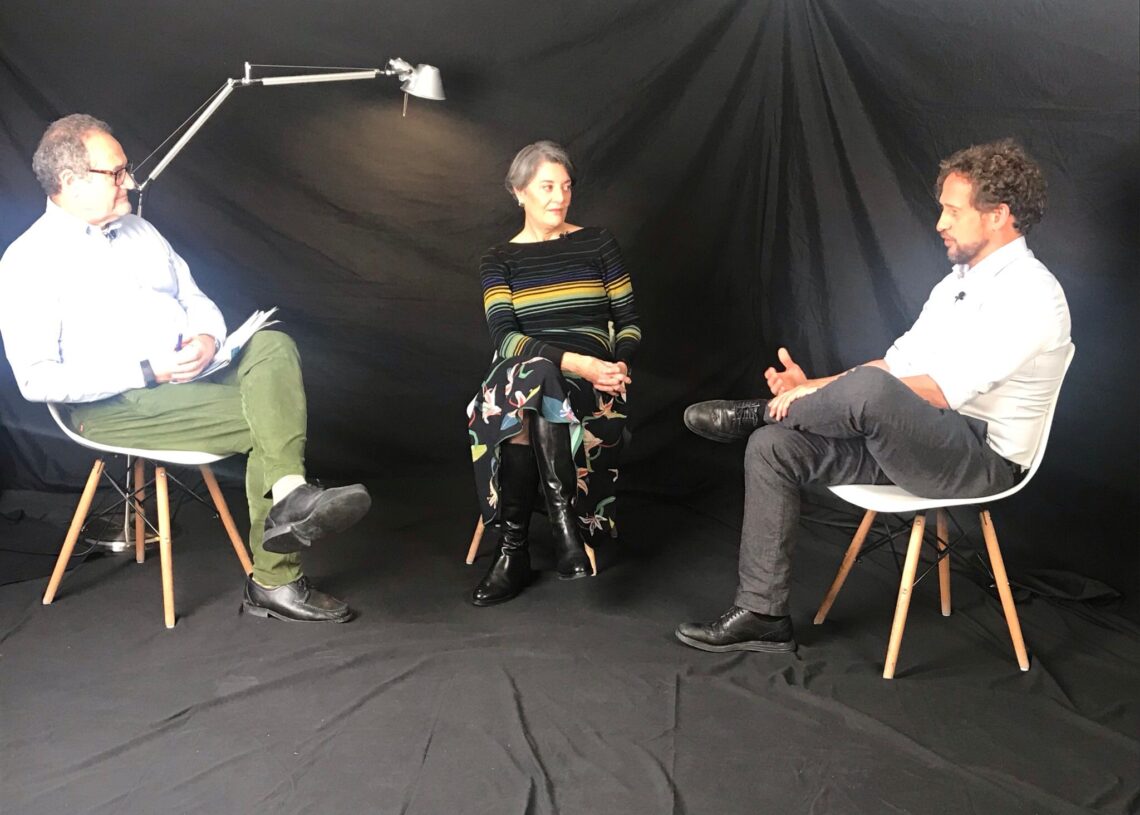This collaboration between the COPOLAD Program, FIIAPP and the DGPNSD opens Let’s Talk about Public Policy (Hablemos de Políticas Públicas), a series of conversations between experts from institutions to discuss global challenges that can and should be addressed through public policy. #Drugs, the first of these videos, is a three-way conversation between Joan Ramón Villalbí, Government Delegate for the PNSD; Anna Terrón, Director of the FIIAPP; and Javier Sagredo, Director of the COPOLAD III cooperation programme on drugs.
In the words of Joan Ramón Villalbí, Government Delegate for the PNSD, there are three keys to any public policy on drugs. On the one hand, “they have to be based on the science of knowledge, not on ideas, impulses or ideology”. In addition, international drug policy “is based on the international law that comes from the UN” and “we must be aware” that the response to the challenge of drugs has two aspects: “a more police-judicial one, which has to do with controlling supply, and another that consists of prevention, assistance and controlling demand”.
Along these lines, Javier Sagredo also stressed that “a geostrategic inequality has been generated in relation to how countries have been able to tackle this issue, and this must be taken into account when dealing with drug issues”.
Spanish expertise in Latin America and Caribbean
Data on drug production, trafficking and problematic drug use show a worrying general upward trend: 36 million people worldwide suffer from drug use disorders. Moreover, according to some estimates, drug trafficking is worth between 426 and 652 billion dollars a year – the equivalent of Sweden’s GDP.
The COPOLAD III programme, led by the FIIAPP in consortium with the Italian-Latin American Institute (IILA) and financed by the European Union, has been working for more than ten years with the DGPNSD and other partners to promote dialogue and cooperation between the European Union and Latin American countries. South America is the origin of coca leaf, coca paste and cocaine hydrochloride production worldwide and in some Latin American and Caribbean countries, 80% of women in prison are deprived of their liberty for minor drug offences.
Women need a specific approach
Feminism has changed some of the parameters for the development of new public policies. “Our cooperation is feminist“, emphasised Anna Terrón, and it is this dimension that has led to the development of new strategies and ways of responding to women’s problematic drug use.
In the words of Joan Ramón Villalbí, “the reality is that women traditionally have a lower consumption of drugs, but those who have the problem have it more seriously and encounter barriers to access services, which have not been designed for them, but for men”. She added that it is women who encourage many men to seek help when they have a problem with drug use, but “who accompanies women who have a problem? Although this situation is less frequent in women, “it is perhaps more complicated for those who have a problem to find a way out”, said Villalbí.
For his part, Javier Sagredo emphasised that the community responses developed in Latin America and the Caribbean are an inspiration, as they have built models of public policy. Sagredo also stressed the importance of “appealing to the urgency of humanising politics more”, given that “the recipes have always been closely linked to being very hard on the weak and very weak on the hard, and I believe that this is part of the revision that we have to make in order to achieve the opposite”.
Silver Medal of the Order of Merit for the FIIAPP
In recognition of the FIIAPP’s work on the prevention and control of illicit drug and narcotics trafficking, the DGPNSD awarded the Foundation the Silver Medal of the Order of Merit in 2021, a recognition that was made effective, after months of delay due to the pandemic, on 7 June with the physical presentation of the medals at the Ministry of Health.
“It is a recognition that we must share because it is a recognition of what we do together,” Terrón stresses in the video. She also points out that, for her, “drugs and heroin were my first pandemic and in my early youth I saw the dark side of life in the eyes of the people around me who were leaving. I have always been left with the idea that this is an issue that matters to all of us, that it can ruin your life and your family”.
For this reason, alliances are essential to face the challenge of drugs and this cooperation is the basis of the FIIAPP’s work. In Villalbí’s words, “we are focused on serving the country, but we like to share some things internationally and we hardly have the capacity to do so. The fact that you are there and that you can gather part of what we and all those who work on drugs in Spain know how to do, to explain it, to share it and to help others, we love it”.
Public policies do not fit in a tweet
With this first audiovisual proposal, the FIIAPP is launching a series of conversations under the name Let’s Talk about Public Policy which, through the voice of experts, explores the scope of the administrations of different countries to share solutions to global challenges.






